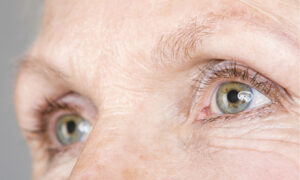 April marks Women’s Eye Health and Safety Month, a crucial time to focus on an often overlooked aspect of women’s health.
April marks Women’s Eye Health and Safety Month, a crucial time to focus on an often overlooked aspect of women’s health.
Women face unique eye health challenges throughout their lives, from hormonal fluctuations to higher rates of certain eye conditions. Taking proactive steps today can preserve your vision for decades to come.
Women are disproportionately affected by several eye conditions. According to recent studies, women account for nearly two-thirds of all cases of visual impairment and blindness worldwide. This disparity stems from both biological factors and lifestyle considerations that uniquely impact women’s eye health.
Hormonal changes throughout a woman’s life can significantly affect vision. Pregnancy often brings temporary vision changes, while menopause may increase dry eye symptoms. Birth control and hormone replacement therapy can also influence eye health, sometimes increasing the risk of conditions like cataracts.
Autoimmune disorders, which affect women at higher rates than men, frequently impact eye health. Conditions like rheumatoid arthritis, lupus, and Sjögren’s syndrome can cause inflammation and damage to delicate eye tissues. Regular screenings become even more vital for women managing these conditions.
Age-related macular degeneration (AMD), the leading cause of vision loss in older adults, affects women more severely than men. Women also experience higher rates of dry eye syndrome, with post-menopausal women particularly vulnerable due to hormonal changes that reduce tear production.
Cosmetic use presents another unique consideration for women’s eye health. Mascara, eyeliner, and other eye makeup can introduce bacteria if used improperly or kept beyond their shelf life. Proper makeup hygiene and regular replacement of products are simple yet effective preventive measures.
Protecting your eye health doesn’t require dramatic lifestyle changes. Small, consistent habits can make a significant difference:
Schedule comprehensive eye exams annually, even if your vision seems unchanged. Many serious eye conditions develop without noticeable symptoms until significant damage has occurred.
Wear UV-protective sunglasses year-round. Sun exposure contributes to cataracts and macular degeneration, making proper protection essential regardless of season.
Maintain a nutrient-rich diet with plenty of dark leafy greens, colorful fruits, and omega-3 fatty acids. These foods support eye health by providing essential vitamins and antioxidants that protect against cellular damage.
Manage screen time mindfully by following the 20-20-20 rule: every 20 minutes, look at something 20 feet away for 20 seconds. This reduces eye strain from prolonged digital device use.
Stay hydrated and consider using preservative-free artificial tears if you experience dry eye symptoms, particularly in air-conditioned environments or during extended screen use.
If you smoke, seek support to quit. Smoking dramatically increases the risk of cataracts, macular degeneration, and optic nerve damage.
This April, during Women’s Eye Health and Safety Month, make vision care a priority. Your future self will thank you for the gift of clear, healthy vision throughout your lifetime. Remember that many eye conditions are preventable or manageable with early intervention—the key is taking action before symptoms appear.
Your vision connects you to the world around you. Protect it today for a brighter tomorrow.
Albert Smolyar M.D.
LASIK, Cataract & Lens Replacement Surgeon
Dr. Smolyar is a board-certified cataract and refractive surgeon with over 25 years of experience. He received his medical degree from Kursk State Medical University in the former Soviet Union. He completed an ophthalmology residency at the University of Louisville and a fellowship in Neuro-Ophthalmology at Michigan State University. He completed another ophthalmology residency at Ben Gurion University in Israel prior to coming to the United States.
Dr. Smolyar specializes in premium cataract and lens replacement surgery, as well as laser vision correction with LASIK, photorefractive keratectomy (PRK), and phototherapeutic keratectomy (PTK). He also has significant expertise in cosmetic and reconstructive eyelid surgery. Dr. Smolyar is certified by the American Board of Ophthalmology. He was in private practice in Louisville, Kentucky, for many years, where he also served as a clinical Associate Professor at the University of Louisville Department of Ophthalmology.
He has been living in Fort Myers since 2018 with his wife and dogs; they have raised three children together. In his spare time, Dr. Smolyar enjoys swimming, scuba diving, kayaking, and fishing. He has dedicated time to providing free surgical eye care in underserved countries and considers that to be one of his passions.
239-768-0006 | SWFLeye.com
6850 International Center Blvd., Fort Myers










